Here is my entry in the Montgomery Clift blog-a-thon. Naturally, I have gone overboard. Oh well. When I love, I love hard, what can I say. I am also vaguely OCD. So I’ve got that going for me as well.
A compilation of quotes from and about this extraordinary and complex and tormented actor. My favorite performance of his is in Red River.
I went a little insane with the quotes. I had to basically stop because … you know … I have a life to live and crap like that. This is one of the benefits of having a huge library.
I have attributed all sources below. The majority of the quotes come from Patricia Bosworth’s indispensable (and bleak) biography of Clift. But there are other sources – you’ll see below. Hope you enjoy. He was a complex man, multi-faceted – and even his friends said they didn’t know who he was. He compartmentalized his life to an almost pathological level – so that whole GROUPS of people who were friends with him did not know about each other. This is a byproduct of being gay at a time when it was not accepted – and Clift had internalized homophobia to the point that he sneered at “fags” and begged film directors [Edward Dmytryk tells the story] to not hire “too many fags” for crowd scenes, etc. So there are no easy answers when it comes to Clift, and frankly: I don’t care about easy answers, or trying to psychologize him. I care about his life in as much as it informs his work.
I love his work. I love watching him think, mainly. Nobody thinks like Montgomery Clift. I love him most in his youth – the Red River heyday – when he has that cocky independent spirit – matched up against John Wayne – another cocky independent spirit of a very different brand of masculinity … but how interesting it is to see them play off of one another. Marvelous movie.
Montgomery Clift EXTRAVAGANZA below.
John Huston:
He was mysterious. He always held something back.
Montgomery Clift:
One must know a bad performance to know a good one. You can’t be middle-of-the-road about it, just as you can’t be middle-of-the-road about life. I mean, you can’t say about Hitler, I can take him or leave him. Well, I can’t be middle-of-the-road about a performance, especially my own. I feel that if I can vomit at seeing a bad performance, I’m ahead of the game.
Excerpt from Peter Bogdonavich’s Who the Hell’s In it:
Clift had been a kind of unacknowledged leader. His performances in Howard Hawks’ Red River (his first movie, though Fred Zinneman’s The Search was released earlier), in William Wyler’s The Heiress, in George Stevens’ A Place in the Sun, heralded a new acting style. It came to be known, inaccurately, as the Method. After Clift came Brando, and after Brando, James Dean. Clift was the purest, the least mannered of these actors, perhaps the most sensitive, certainly the most poetic. He was also remarkably beautiful. Over eight years he acted in eight films, became a teenage heartthrob as well as a popular star with older audiences. He was nominated for Best Actor Oscars three times in six years and should have won each time. He gave at least four performances – in Red River, in A Place in the Sun, in I Confess and in Zinnemann’s From Here to Eternity – that remain among the finest anyone has given in the movies.
Howard Hawks:
He worked — he really worked hard.
Excerpt from Peter Bogdonavich’s Who the Hell’s In it:
Here it was about eight years after Clift had acted in it, and I Confess was on the screen; I was standing in the back of the theater watching. About halfway through, I saw Clift come up the aisle, slumped over, weaving a little. At the back, he lit a cigarette and turned to look at the screen again. I came up and said I worked there. He was polite. I said I liked the picture and asked if he did.
The huge image on the screen at that moment of his pre-accident beauty must have seemed to mock him. He turned away and looked at me sadly. “It’s … hard, you know.” He said it slowly, hesitantly, a little slurred. “It’s very … hard,” he said. I nodded. He looked back at the screen.
A few steps away was a “request book” [Dan] Talbot had set up for his patrons. It was a large lined ledger in which audiences were encouraged (by sign and trailer) to write down what movies they would like to see. I told Clift about the book and said I wanted to show him something. He followed me over, puffing his cigarette absently. I leafed through the book quickly and found the page on which I had noticed a couple days before that someone had scrawled in large red letters: “ANYTHING WITH MONTGOMERY CLIFT!”
The actor stared down at the page for several moments. ‘That’s very … nice,” he said, and continued to look down. “That’s … very nice,” he said again, and I realized he was crying. He put his arm around me unsteadily and thanked me for showing it to him. Then he turned and walked back down the aisle to his seat.
When the picture was over, he and Mrs. [Walter] Huston came out of the theater. I was standing outside. He waved to me gently and they got back into the Rolls-Royce and it was driven away. He made only two films more before he died five years later at the age of forty-six – a lost poet from Omaha, Nebraska, the most romantic and touching actor of his generation.
Excerpt from Kazan: The Master Director Discusses His Films, by Jeff Young
Why did you cast Montgomery Clift [in "Wild River"]?
He wasn’t my choice. I wish I had been able to cast someone more masculine, someone stronger would have been better. It’s hard to cast an intellectual. I would have preferred Brando, but then I always prefer Brando. He was unavailable, so I kept postponing the picture and postponing it, tryiing to find somebody I liked. I liked Montgomery Clift personally, but he was in very bad shape. He had had an auto accidnet going down the hill from Liz Taylor’s house. He was banged up. His face was almost a different face. He was also very shaky and on liquor and drugs, just quivering with doubt. It was a tough, tough thing to deal with. He was also unmasculine, which hurt the love story. I think I could have done better, but I didn’t know with whom. I still don’t know.
Brooks Clift [Monty's brother]:
Psychologically we couldn’t seem to take the memories [of our childhood] so we forgot. But at the same time we were obsessed with our childhood. We’d refer to it among ourselves, but only among ourselves. Part of each of us desperately wanted to remember our past and when we couldn’t it was frustrating. It caused us to weep, when we were drunk enough, when some minor detail from our past was released. Monty once said the smell of boot polish reminded him of winter when he was a boy. He would get hysterical over the smell of boot polish.
Patricia Collinge, actress, starring in Dame Nature on Broadway with Clift in 1938:
He’d invent bits of business or character details that were sometimes offbeat or strange. I’m still reminded of Camus’s phrase ‘create dangerously’ when I think of Monty’s acting, because he was starting to make unorthodox acting choices even then.
There is one long speech in the play when Monty as Andre tries to explain to his father how his loneliness and unhappiness had forced him to seek affection from an equally lonely girl.
Monty’s performance was heart-rending. It was so quiet and sincere that it seemed almost untheatrical, except underneath the controlled tone was an absolutely compelling sense of torment.
Friend Bill Le Massena:
Monty had this glorious instinctive talent bursting out of him and Mr. Lunt recognized it and helped him focus and cultivate it. He kept asking Monty questions about his part – specific questions – he helped him develop an inner life for the character by using elements of himself. Like Lunt, Monty was a natural actor, a born mimic. He never needed or wanted to hide bhind a fake mustache or accent. He used his inner self.
Nancy Walker, on Monty’s love of music and singing:
He could never carry a tune, but, my God, did he believe in the lyrics!
Montgomery Clift on Alfred Lunt, his mentor and acting inspiration:
Alfred taught me how to select. Acting is an accumulation of subtle details. And the details of Alfred Lunt’s performances were like the observations of a great novelist – like Samuel Butler or Marcel Proust.
Ned Smith on seeing Clift in a revival of Our Town in 1944:
It was the first time I realized Monty was such a special actor. He had a moment at the end of the play where he jumps over a series of imaginary rain puddles – it was quite extraordinary the way he did it.
Herman Shumlin, directed Monty in Lillian Hellmann’s The Searching Wind:
Monty belonged on the stage. There are certain actors who walk out in front of an audience and they belong there. You believed him the instant he spoke a line.
Tennessee Williams [who saw Monty onstage in Mexican Mural and said it was one of the most remarkable performances he had ever seen:
Monty loved being in awe of people. He seemed to look on all the arts - dance, music, and theater - as if they were great mysteries. I never knew him well because I wasn't sexually attracted to him but I know one thing - his major impulse was to be an artist. Monty disliked me because I was so open about being gay and he wasn't.
Montgomery Clift:
I watched myself in Red River and I knew I was going to be famous, so I decided I would get drunk anonymously one last time.
Excerpt from Patricia Bosworth's Montgomery Clift:
The essential Clift character tended to be a loner, outside the mainstream, isolated - intense but always struggling against conformity, and within that framework Monty's range was extraordinary; his characters were by turn extroverted, withdrawn, articulate, or monosyllabic, assertive, passive.
He was a great believer in the psychological gesture, the physical manifestation of an emotion. It could be expressed in a look - how he stares into Shelley Winters' face before he kills her in A Place in the Sun, the sidelong glance of astonishment and desire when he sees Elizabeth Taylor for the first time in Place, the way he phones his mother in The Misfits, as if he's just been slugged; in his greatest performances Monty personified, rather than impersonated, character.
Photographer Richard Avedon on seeing him in The Search:
The minute Monty came on the screen I cried because he was so realistic and honest and I was deeply touched. He seems to be creating a new kind of acting - almost documentary in approach. It has the style of reportage.
Excerpt from Patricia Bosworth's Montgomery Clift:
When Kevin [McCarthy] was rehearsing Romeo for CBS’ “Omnibus” and he was having trouble with the death scene, “I asked Monty to help me and we worked one entire night in our living room with Gussie playing the dead Juliet, Monty playing Romeo. He was agonizingly brilliant,” Kevin says. “He seemed totally assured in his conception of the character. His Romeo was impetuous, romantic, fumbling with words as he expressed his love for Juliet. He also brought a physicality, an athleticism to the role. His entire body seemed part of the work. And then there was this power – this originality behind the concept. He played young love so intensely, so truthfully.”
They rehearsed till five in the morning: after Gussie staggered off to bed Monty went over the scene for the last time using a pillow as Juliet. “I remember he covered it with passionate kisses, then rocked it back and forth in his arms like a baby.”
Note given to Monty by a handwriting analyst who had taken a look at a page in one of Monty’s notebook and seen his writing:
“You’re the most disturbed man I’ve ever seen – you’ll die young.”
Hollywood press agent who knew Clift in the late 40s:
Right off he was labeled an outsider. The minute you refuse to play the game in Hollywood exactly as they want it, and that means totally giving up your body and your soul and your guts to becoming a STAR, you become an outsider. The minute you have integrity – which is what Monty had – you are an outsider. The minute you refuse to sell yourself as a commodity, a product, the agent and producers and directors who literally feed off talent call you an outsider, and it is much harder to survive. Hollywood couldn’t have cared less that Monty preferred to live in New York and disapproved of the pap about himself in fan magazines. To survive being a star in Hollywood like Humphrey Bogart or Gary Cooper, you have to be sensitive and ruthless, humble and arrogant. Monty was sensitive. Period.
Monty to Elizabeth Taylor after finishing a scene in Place in the Sun – he had gotten so into it that he was drenched in sweat:
That’s the worst part about acting. Your body doesn’t know you’re acting. It sweats and makes adrenalin just as though your emotions were real.
Richard Burton:
Monty, like Garbo and Brando, had the extraordinary facility of giving you a sense of danger. You were never quite sure whether he would blow his lines or explode.
Monty’s friend Ned Smith:
He talked about meeting Laurence Olivier, whom he was very impressed with – he thought he was absolutely wonderful. He talked about Marlene Dietrich, and he was very specific about her comeback in Las Begas, which he’d gone to, and the dress she had on – all the spangles which seemed stuck to her body – and he did an imitation, he mimed the dress. He talked about how Dietrich and Ernest Hemingway had come over to the brownstone and how Hemingway was a transcendent bore, he seemed so self-important. He talked about Vivien Leigh and how hard she was on Laurence Olivier: ‘She is very neurotic and very nervous, and she holds her teacup like this,’ and he imitated Vivien Leigh and the gesture was totally effeminate and it distressed me greatly. He talked no more about doing many things in his life – broadening his life – he talked only about ‘I have my work to do and this and that.’ He took singing lessons; he went to the gym; he had to go to the dentist’s. He talked about the movie African Queen and he said, ‘I can’t stand the way Katharine Hepburn plays the part.’ He said, ‘When she pours gin overboard she doesn’t do it right.’ I said, ‘What do you mean? I thought that was a terrific scene, one of the greatest scenes I’ve ever seen in a movie,’ and he answered, ‘Terrible job.’ He spoke a lot about From Here to Eternity and Frank Sinatra, who he thought would be great for the part of Maggio … I wanted to tell him about my experiences – I had been to Spain and lived there and learned the language and had been turned upside down by the experience. But, well, there were things about Monty now that I’d been sensing about him that made me uneasy … Still it was so pleasant knowing him, and I felt I could help him … That’s not the right way to put it. I felt I was still very much part of his life …
Francois Truffaut:
Monty was truly remarkable. Throughout the picture [I Confess], his attitude as well as his expression is consistent. He has an air of dignity at all times. It’s only through his eyes that we see his bewilderment at all the things that are happening to him.
Clift on Prewitt, the character he played in From Here to Eternity:
Prew is a limited guy with an unlimited spirit, an inarticulate man, never a ‘word’ man … Good dialogue simply isn’t enough to explain all the infinite gradations of a character. It’s behavior – it’s what’s going on behind the lines.
Fred Zinnemann, director of From Here to Eternity:
Monty was so intense about being Prewitt he raised the level of the other actors. He cared so much they started caring.
Burt Lancaster:
He approached the script like a scientist. I’ve never seen anyone so meticulous.
Jack Larson on how Clift would cut his lines, slashing his script up – so that he would have less and less to say in each scene (all the greats did that – Bogart, Wayne, Grant … They didn’t hoard their lines, they CUT them, knowing that it was better, in films, to say less – to let your face and your behavior tell the scene):
He worked out all sorts of broken speeches for himself. In that long scene with Donna Reed [in From Here to Eternity], where he explains why he can no longer box, he must have worked over a single speech for at least twenty-four hours straight Finally he came up with the sentence, ‘And then I hit him – and he couldn’t see any more.’ He said that he couldn’t use the word blind because it didn’t mean anything to him, but the word ‘see’ did.
James Jones, author of From Here to Eternity and drinking buddy of Clift:
I told him [Clift] I felt cut off from a lot of experience being a writer, working by myself so much,a nd he said actors were cut off too. ‘Except you writers don’t need to hear the sond of applause,’ he said. I said, ‘What the hell are you talking?’ and he stares at me with those funny blazing eyes of his and then he starts laughing that crazy-sounding laugh.
Monty had a special kind of pain, a pain he could not release. He had a tragedy hanging over his head like a big black comic-strip cloud. It was so distinct you could almost see it. I never heard him talk about himself personally.
Fred Zinnemann:
His drinking was more deadly than Spencer Tracy’s. Drunk or sober, Spencer knew who he was, but when Monty drank he seemed to lose his identity and melt before your eyes.
Excerpt from Patricia Bosworth’s Montgomery Clift:
The day Monty played that death scene [in From Here to Eternity] a lot of people on the set cried. He played it as if he knew the murder of Fatso had been to no avail – that he had to die. It was inevitable. “How he evoked that feeling I don’t know,” said James Jones, who watched the scene being shot, “but he ran into his death like someone running into a gigantic tidal wave. His face was gaunt – tense, chalk white – he looked as if he’d had the guts pulled out of him, then he rolls over on the grass and Zinnemann calls cut! And someone says, “Prew’s dead,” in a hushed voice.
Karl Malden on why Monty’s performances were often undervalued:
Because he always becomes part of the warp and woof of a script. So much so that his artistry wasn’t always appreciated. If you watch him in From Here to Eternity, he completely immerses himself in the character and situation of Prewitt, so much so that he actually sinnks into the flesh of the story.
Andrew Sarris, film critic:
You could place Yul Brynner but you couldn’t place Clift. On screen Montgomery Clift was a chameleon – furtive. In every movie he seemed to be looking for himself.
Friend Jack Larson:
It didn’t matter what sex you were. If Monty really liked you – man or woman you ultimately went to bed with him. If he liked you, he couldn’t keep his hands off you – touching – caressing – hugging – he was very physical and very, very affectionate. And of course he was always passing out with you and then you were undressing him and putting him to bed and finally you were ending up in bed with him too.
Bill Gunn:
I’ve never known anyone who liked being in front of a camera as much as Monty. He was the same way in front of a mirror – never ashamed; he enjoyed looking at his reflection. He was like a woman in this regard. He could stare for minutes on end at his image unselfconscious – totally relaxed.
Montgomery Clift:
James Dean’s death had a profound effect on me. The instant I heard about it, I vomited. I don’t know why.
Montgomery Clift called Elizabeth Taylor (his best friend, his soulmate) “Bessie Mae”:
You know how it is when you love somebody terribly but you can’t describe why? That’s how I love Bessie Mae.
Excerpt from Patricia Bosworth’s Montgomery Clift:
Monty was so concerned with the weaknesses in the Raintree script he harried [director Edward] Dmytryk with suggestions and changes he’d stayed up half the night thinking up. A burly man with cold eyes and an abrupt manner, Dmytryk had his own problems. He had made forty-seven movies, among them Crossfire and Caine Mutiny, but he was a former member of the Hollywood Ten who had gone to jail, then recanted to save his career.
“Monty and I met as often as possible for drinks or lunch. I agreed to listen to his suggestions. He was obviously a great actor – very inventive. But I sometimes felt he worried things to death, little things.”
He recalled his preparation for a “flash” scene – a scene lasting no more than a second or two on the screen – the scene called for Monty to enter the room and see his baby for the first time. Monty practiced opening and closing the door countless times; he tried it abruptly, tentatively, fearfully, joyfully, excitedly, all to find the one entrance which would convey exactly the emotion he wanted.
Adele Morales Mailer:
At parties, most of the time he was drunk. Most of us were too. He was a good kisser–I can tell you that. Certainly, he was interested in women. He may have been bi. God, he was tortured. He was driven. You felt an underlying sadness. Even without knowing anything about him. Some people you know without knowing anything about them.
Donna Reed:
“I had never worked with any actor like him; to watch him was incredible and memorable. He had a talent and a side to our profession I had never seen before, just superb.”
Excerpt from Patricia Bosworth’s Montgomery Clift. Kevin McCarthy on the tragic car accident that ruined Clift’s face and almost killed him. They had all been at a party at Liz Taylor’s, up on a hill. Then it was time to go. Kevin got in his car, Monty got in his car – behind Kevin’s – and they took off down the drive.
Suddenly I looked in my rearview mirror and I saw that Monty’s car was coming much too close to my car. I got the idea he was going to play one of his practical jokes – he was going to give my car a little nudge. He never did bump my car, but I had the feeling he might, so I put my foot on the gas and went a little faster. Monty’s car seemed to be almost on top of me. I wondered if he was having a blackout. I got frightened and spurted ahead so he wouldn’t bump me. We both made the first turn but the next one was treacherous. We were careening now, swerving, and screeching through the darkness. Behind me I saw Monty’s carlights weave from one side of the road to the other and then I heard a terrible crash.
A cloud of dust appeared in my rearview mirror. I stopped and ran back. Monty’s car was crumpled like an accordion against a telephone pole. The motor was running like hell. I could smell gas. I managed to reach in the window and turn off the ignition, but it was so dark I couldn’t see inside the car. I didn’t know where Monty was. He seemed to have disappeared.
I ran and drove my car back and shone the headlights into Monty’s car. Then I saw him curled under the dahsboard. He’d been pushed there by the force of the crash. His face was torn away – a bloody pulp. I thought he was dead.
I drove back to Elizabeth’s shaking like a leaf and pounded on the door. “There’s been a terrible accident!” I yelled, “I don’t know whether Monty’s dead or alive – get an ambulance quick!” Mike Wilding and I both tried to keep Elizabeth from coming down to the car with us but she fought us off like a tiger. “No! No! I’m going to Monty!” she screamed, and she raced down the hill.
She was like Mother Courage. Monty’s car was so crushed you couldn’t open the front door, so Liz got through the back door and crawled over the seat. Then she crouched down and cradled Monty’s head in her lap. He gave a little moan. Then he started to choke. He pantomimed weakly to his neck. Some of his teeth had been knocked out and his two front teeth were lodged in his throat. I’ll never forget what Liz did. She stuck her fingers down his throat and she pulled those teeth. Otherwise he would have choked to death.
Jack Larson:
When I first saw him [after the accident], I almost went into shock but I think I hid it because he said, “I don’t look too different, do I, mon vieux?” I think he was teasing me. He wanted the truth him and I assured him no, no you don’t. Of course, he looked completely different. His mouth was twisted. A nerve had been severed in his left cheek so that the left side of his face was practically immobile – frozen. His nose, that perfect nose!, was bent – crooked – out of shape. He looked stuffed, that’s the only way I can put it – the only feature that remained the same were his eyes – they were still brilliant and glittering and they stared right through you, but they were now brim full of pain.
Excerpt from Patricia Bosworth’s Montgomery Clift – from 1956 – Clift has had his accident, and now barely leaves the house. Black drapes over the windows. He has gone into hiding for months.
Just before he left Hollywood to go back to New York in late November, a man drove up to the house and informed Monty that “Marlon Brando want to talk to you seriously and in private about something. Are you agreeable?” Monty said sure, tell him to come on over, and the man drove off.
No more than ten minutes later another car drove up and out stepped Marlon Brando. Dressed in work clothes, he was scowling as he approached the house. He’d had his eyebrows shaved off for the role he was then filming: Sakini in Teahouse of the August Moon.
Monty came out to meet him; then the two men went into the house and conferred in the living room for about an hour.
[Jack] Larson, since he was going to drive Monty into the doctor’s later that afternoon, waited by the pool. From his vantage point he could see the actors pacing about the living room, then sitting down opposite each other at a table in the foyer. An hour later Brando strode out, got into his car, and disappeared down the hill.
Larson didn’t ask questions, but later, on the way to the doctor’s, Monty told him what had been said. Apparently Brando had been hearing all sorts of stories about Monty destroying himself with pills and booze. Brando wanted to communicate something: Monty must stop this shit. He must take care of himself not only for himself but for Marlon Brando.
“Then he got into this rap about competition – the healthy competition that should exist between actorrs – that existed, say, between a Laurence Olivier and a John Gielgud, between a Richard Burton, then, and a Paul Scofield. These men challenge each other, he said. Now, didn’t Monty know the only actor in America who interested Brando was Monty? Didn’t he realize they had always challenged each other, maddened each other, intrigued each other, ever since they started their careers? Brando said the year he’d been nominated for Streetcar Monty had been nominated for Place in the Sun. ‘I went to Place in the Sun hoping you wouldn’t be as good as you were supposed to be, but you were even better, and I thought, hell, Monty should get that award.’ And Monty answered, ‘I thought the same thing! I saw you in Streetcar praying you’d be lousy – and at the end I thought Marlon deserves the Oscar.’ Brando said, ‘In a way, I hate you. I’ve always hated you because I want to be better than you, but you’re better than me – you’re my touchstone, my challenge, and I want you and I to go on challenging each other … and I thought you would until you started this foolishness …’”
Monty seemed surprised Brando would take the trouble to come over and talk. He seemed quite moved. ‘I don’t think either Marlon or I are imitators, which is why I guess we respect each other. Maybe because we both have delusions of grandeur.”
Monty, on his role in The Young Lions:
With all the accoutrements and mannerisms I’m trying for the essence of something. Acting is an accumulation of subtleties – like shaking the ash from a cigarette when a character is supposed to be completely absorbed in a conversation.
Excerpt from Patricia Bosworth’s Montgomery Clift
During filming [of The Young Lions], Monty became friendly with Dean Martin and did everything he could to help the singer in his first dramatic role, just as he had with Sinatra in Eternity. They would run lines together; when he saw Martin was nervous he would break him up. During a party sequence he hid under a pianno on the set and tickled Martin’s leg until he had a laughing fit. Inn the evenings, they would go off and have drinking contests. Martin nicknamed him “Spider” because of the extravagant gestures he used when he talked.
Nancy Walker (one of his dearest and staunchest friends):
Monty and I never played roles with each other, or let’s say, hardly ever – and we didnt’ wear masks. Speaking of masks, I used to tell Monty if you hadn’t been in the car crash you’d just be another aging pretty face. I liked his face better after the accident: his strength shone through …
People wouldn’t let him be strong. He’d been raised to believe he was weak. I used to get so mad at his secretary. We’d be going out to dinner, and she’d say, ‘Now you be sure Monty eats,’ and I’d snap, ‘Isn’t that what you’re supposed to do when you go out to dinner?’ and she’d cluck, ‘But poor Monty is so frail – cha-cha-cha,’ and I’d say, ‘You are crazy. Monty is as strong as an ox.’ He had arms like iron – hands like a musician … whenever I got bugged, I’d phone him and I’d say, ‘I need you. I don’t care whether you need me, I need you,’ and he’d cry, ‘Nanny, what is it? Tell me!; He needed to be needed.
Monty on Noah, the part he played in The Young Lions:
Noah was the best performance of my life. I couldn’t have given more of myself. I’ll never be able to do it again. Never.
Bill Kellin, actor:
But as anguished as Monty was, and I sometimes felt there was an actual physical presence hovering in the room that he was terrified of – when he acted a scene it was sculpted forever. There was a solidness about the work – a rocklike quality. There was nothing casual about his acting. If he had genius it was that he revealed himself so totally as an actor – he stripped himself naked. He hid his real life – nobody was as mysterious or remote as Monty except I guess to a few friends. But in his acting he revealed himself as powerfully as a scream.
Excerpt from Method Actors by Steve Vineberg:
The love scenes in A Place in the Sun are justly famous. When Angela wanders into the pool room and discovers George, retreating from a party where he knows no one and feels out of place, he relaxes his face and accepts the stronger force of her extraordinary beuaty like a happily defeated warrior. She’s affected too – by his inability to keep his feelings concealed. (George makes immediate erotic contact with both the women characters in the film: the factory drudge, Alice, played by Shelley Winters, whom he has an affair with and gets pregnant, and the socialite, Angela, who enters his life after he’s already become involved with Alice.) Love shatters George. He confesses hisl ove to Angela as if he were confessing murder, running on fast, feverishly, in a desperate, choked voice, his smile pulled in one direction by rapture and in another by agony … For Clft, sexual conflict is always bound up with spiritual conflict. The realm of the spirit was the arena where the actors of Clift’s generation fought their most feverish battles; following in John Garfield’s footsteps but moving beyond him, they also deined themselves by a brooding, unresolvable sexuality. Clift inhabits both these areas simulatneously, heralding the arrival of a new breed of actor.
Excerpt from Patricia Bosworth’s Montgomery Clift – on his small wrenching part in Judgment at Nuremberg:
He got two weeks at the Bel Air Hotel plus two first-class plane tickets for himself and Giles. Before leaving for the Coast that April he packed his little photograph of Kafka and he told Nancy Walker he was going to get a “very bad haircut”. “Monty believed the poor slob he was playing would get a special haircut before testifying against war criminals.”
He spent the first day rehearsing with Spencer Tracy at Revue Studios in Hollywood. They rehearsed on a complete replica of the Nuremberg courtroom, built on rollers so the cameras could move in at any angle. Monty’s scene, which ran seven minutes, was to be done mostly in close-up. He was worried about remembering his lines.
When time came to shoot the sequence he panicked – and he fluffed in take after take. Finally Tracy ambled over and said, “Fuck the lines – just play to me.” Kramer recalled, “Spencer was the greatest reactor in the business. Monty did play to him, and the words poured out of his mouth – the results were shattering.”
He spoke in a whisper, full of terror and unhealed suffering; his eyes were like those of a ten-year-old child. He recited his entire story to Tracy very simply, only rising to hysteria when he held out a photograph of his mother who’d been murdered in a concentration camp.
As soon as the highly charged scene was over, Tracy ran from the judges’ bench, threw his arms around him, and praised him in glowing terms for his powerful, sensitive playing; he was nominated for an Academy Award for best supporting actor for his performance.
Alfred Hitchcock:
Montgomery Clift always looked as though he had the angel of death walking along beside him.
Frank Taylor:
Monty and Marilyn [Monroe] were psychic twins. They were on the same wavelength. They recognized disaster in each other’s faces and giggled about it.
And after all of this, I think I will end with a quote from Mr. Clift himself.
Here is a snippet from an interview Montgomery Clift gave during the filming of The Misfits (more here) – this is an excerpt from The Making of the misfits by James Goode, a journalist who was there as they filmed the movie:
“I wish I were more thin-skinned. The problem is to remain sensitive to all kinds of things wihtout letting them pull you down. Now, take this – the fact that someone drops a book of matches at a time when he most wants not to seem ill at ease. To a normal person that is not a terribly moving talent, but to an actor in films, such a thing maybe perhaps changes the whole relationship to the girl that dropped the matches. The only line I know of that’s wrong in Shakespeare is ‘Holding a mirror up to nature.’ You hold the magnifying glass up to nature. As an actor you just enlarge it enough so that your audience can identify with a situation. If it were a mirror we would have no art. Essence is a wonderful word. Miller has written the essence of Roslyn. You’d be bored to death if it were a mirror. Take the line in the script, ‘Who did this to me? The ambulance did it.’ Magnifying the essential things that liberate the imagination and enable one to identify – when one has those qualities, they are fabulous gifts. Take a pause, for example. That I call a magnification. I wouldn’t call it a mirror. The magnifying glass has been misused totally, but in this picture it has been put to the use of capturing what possibly is flitting in and out of someone’s mind and one person’s relationship to another and another, and that’s what’s fascinating.”
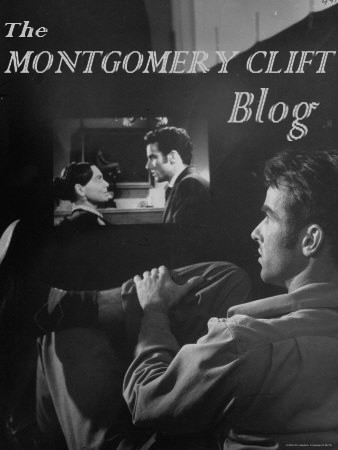

.-+albornoz+(4)+BLOG.jpg)
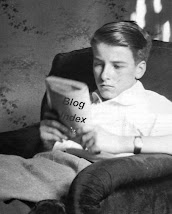
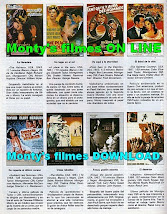


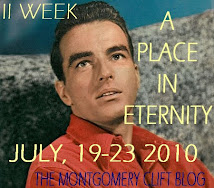










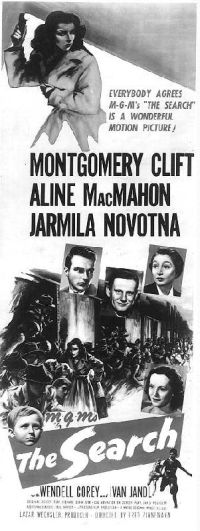

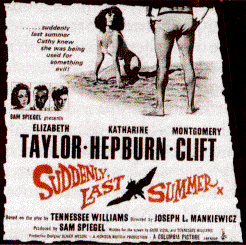


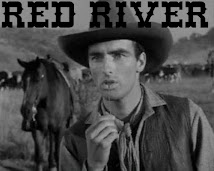
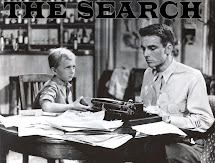

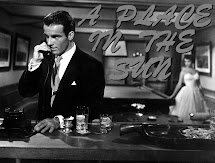2.jpg)
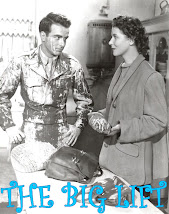.jpg)
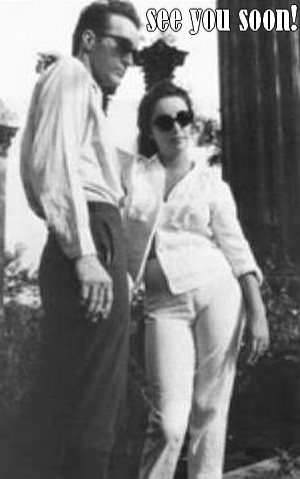

.jpg)


No hay comentarios:
Publicar un comentario